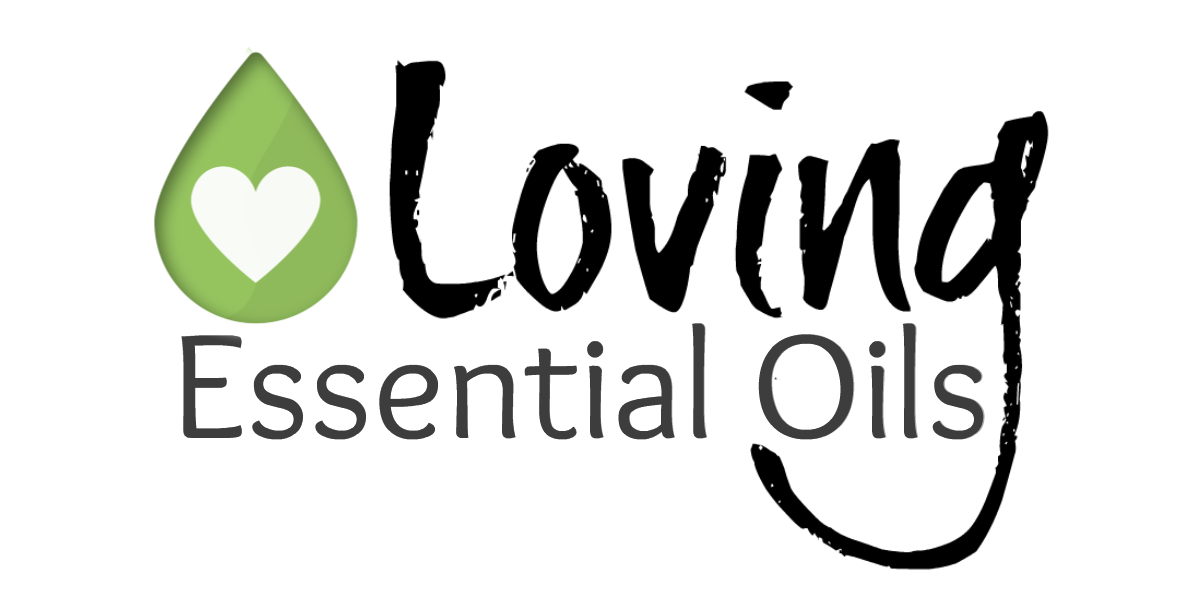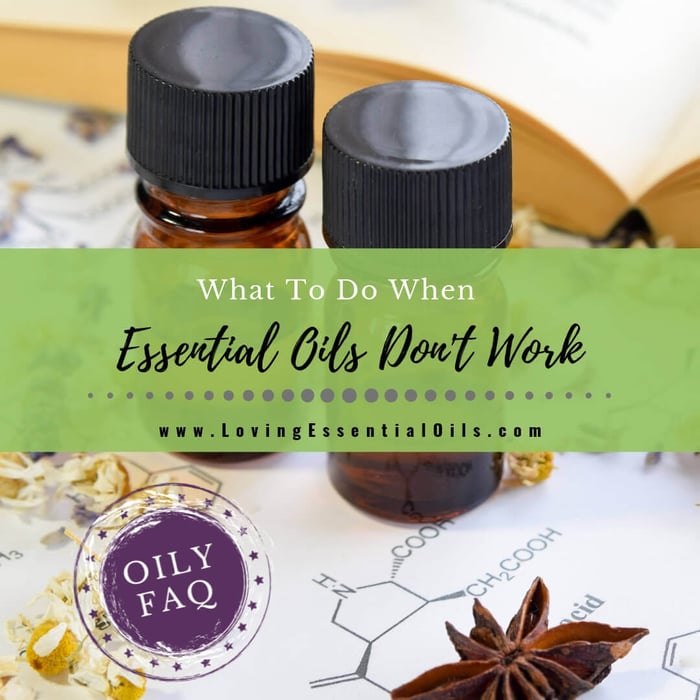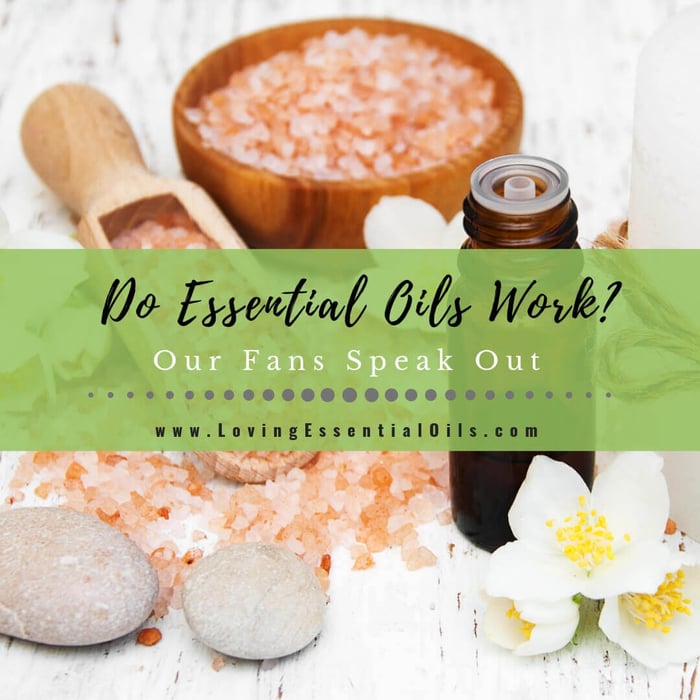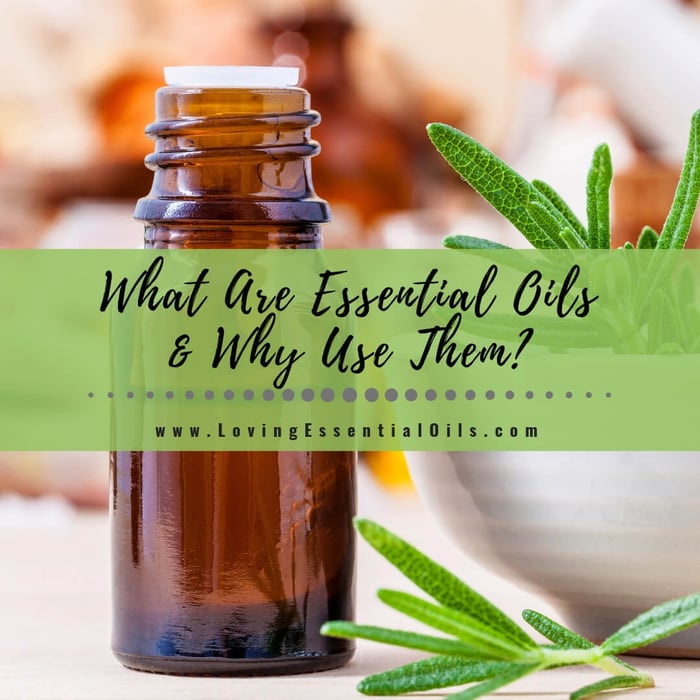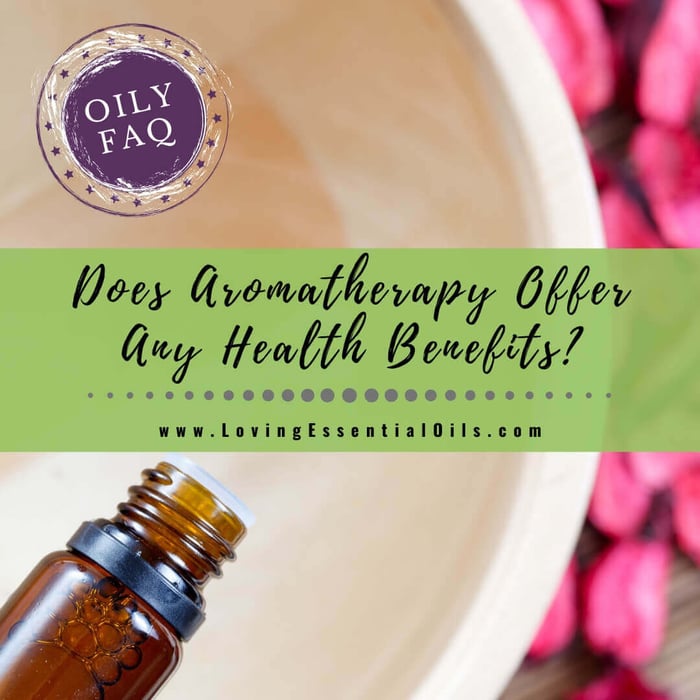Table of Contents
I love to think that essential oils are my little miracle helpers when it comes to mine and my family's health. We always turn to essential oils first to ease our everyday aches, pains, and aliments.
I especially find it wonderful to use essential oils for emotional support, like to calm anxiety, ease stress, and improve mood.
What can be unexpected is when essential oils don't work for the issue of concern. What should you do then? Before we look into if essential oils don't work, let's review how fast they take to work.
How Fast Do Essential Oils Work?
Essential oils are known for their amazing abilities to provide healing and therapeutic effects in a short amount of time. Depending on the essential oil, you may experience almost immediate relief from physical pain, mental stress, and even emotional distress.
For instance, peppermint oil is a popular essential oil used for headaches and tension. When applied topically on the temples, forehead, and/or neck and shoulders, it can bring quick relief to those experiencing a headache or tension.
Similarly, lavender essential oil has been studied as an aid in insomnia due to its calming scent when inhaled before bedtime. Although essential oils vary in how fast they work depending on the user, essential oils are powerful tools for overall wellness that can provide remarkable results quickly.

What To Do When Essential Oils Don't Work?
Are essential oils not working for you like they should? Have you tried multiple combinations with no success? Don't worry, we have some ideas! If you're frustrated with the results from your essential oil regimen, keep reading. We've got a few tips on what to do next!
1. Try It Again
If your initial application wasn't effective for your desired goal, you may need to apply the essential oil or oil blend again. Some issues may need a follow-up application, or even consistent use for a short time.
For example, I had a small rash on my finger under my ring. I used tea tree oil and lavender essential oil in a roller blend and applied it to the area. The initial application helped but didn't clear it up completely. My finger required a few more applications before it healed up.
2. Try a Different Method
Essential oils can be used aromatically and topically in various application method. If one method isn't working, you can try a different application method.
For example, I like to put on a diffuser blend when I start feeling a tension headache come on.
Sometimes this method is enough to ease my tension, other time I require topical use of essential oils for my headache, like in a roller bottle.
3. Try A Different Essential Oil
I love that there are so many essential oil options for each of my concerns. If one oil or oil blend isn't working, I try a different oil or oil blend. People will react differently to essential oils, so if one fails... don't give up, try something else.

4. Try a Little More
Essential oils are very powerful and concentrated. They should be used with caution. I always prefer to use the least amount needed to accomplish my goal. So my initial amount used may not have been enough, I may need to use a strong amount. I just make sure I am staying in the safe usage dilution guidelines when applying topically.
5. Seek Medical Help
Let's face it, there are some issues that require medical assistance, essential oils just won't work. It is important to remember that essential oils can be helpful, but they should not be used as the primary treatment for serious medical conditions or a substitution for medical advice from a doctor.
A few days ago my teenage son started having generalized abdominal pain. I had him use a digestive blend that I already had made. He did get some relief from the pain but ended up vomiting about 2 hours later.
The next morning the pain had moved to the right lower quadrant of his abdomen (where the appendix is). It was more severe and essential oils weren't working. The pain was accompanied by a low grade fever and loss of appetite so I was concerned he had appendicitis. You can read more about the signs and symptoms of appendicitis here.
I took him to the emergency department and 5 hours later he had his appendix removed. The surgeon said his appendix was very inflamed but hadn't rupture so the surgery was quick and he was able to go home that night after the surgery.
This is the perfect example of when medical intervention was necessary. A ruptured appendix can be fatal so it is important to seek medical treatment as soon as possible.
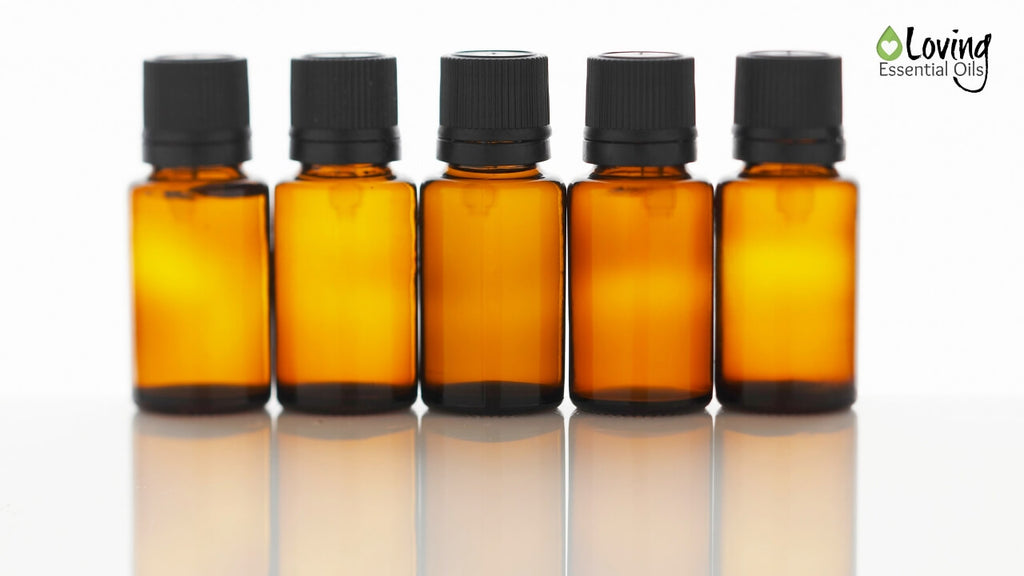
What I think is wonderful about essential oils is that even if they can fix a medical problem, they can offer emotional support for whatever I am going through.
Essential Oil Facts to Know
Essential oils can be irritating to the skin and may cause allergic reactions in some people. It is best to do a skin test before applying topically to the skin. Essential oils can be toxic if ingested and can cause problems if used incorrectly. They can also be expensive and may not be cost-effective for assisting with chronic conditions.
Essential oils are:
- Not regulated by the FDA and do not have to meet any standards of efficacy or safety.
- Not considered drugs and therefore cannot be used to treat or cure any medical condition.
- Volatile compounds that evaporate quickly, so effects may be short lived.
- Not a substitute for medical care and treatment, and they should not be used for serious medical conditions.
Learn more about essential oils and common mistakes made with them.
Share on Pinterest

31 PC Deluxe Essential Oils Kit: Aromatherapy Supplies
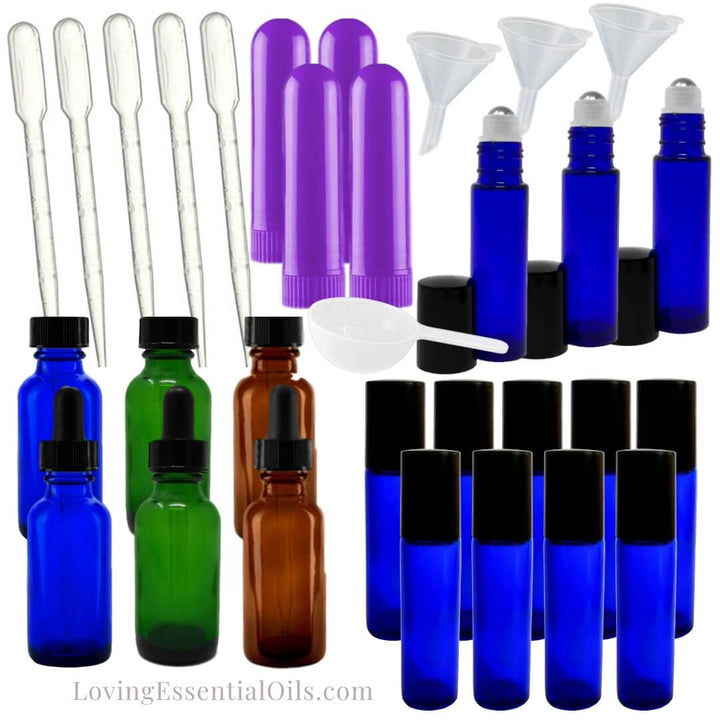
$ 37.00
31 PC Deluxe Essential Oils Kit - This Aromatherapy Supplies set includes a variety of tools needed for making DIY products with your essential oils. Use this kit to make roll on blends, inhaler blends, massage oils, face serums, and… Read More
